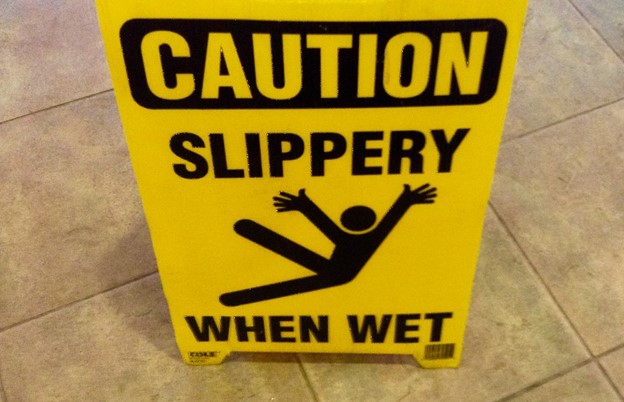Starting and running a business can be a challenging and rewarding experience. Entrepreneurs pour their heart and soul into their business, often at great personal and financial risk. The thought of something happening that could jeopardize everything they’ve worked for is enough to make anyone nervous. Unfortunately, disasters, accidents, and lawsuits can and do happen, and when they do, they can cause significant financial losses. Business insurance can provide peace of mind and protection against financial ruin. In this article, we’ll explore the importance of business insurance and why it’s essential for any business owner.
What is Business Insurance?
Business insurance is a type of coverage that protects businesses from losses due to unforeseen circumstances. It typically covers things like property damage, liability claims, and employee injuries. There are many different types of business insurance policies available, including general liability insurance, property insurance, workers’ compensation insurance, and professional liability insurance.
General liability insurance covers businesses against claims of bodily injury, property damage, and advertising injury. Property insurance, as the name suggests, covers damage to a business’s property, including buildings, equipment, and inventory. Workers’ compensation insurance covers employees who are injured on the job, while professional liability insurance protects businesses against claims of negligence, errors, and omissions.
Why is it important?
There are several reasons why business insurance is essential for any business owner. First and foremost, it provides protection against financial losses that can result from unforeseen circumstances. Without insurance, a business owner would be responsible for paying for damages and legal fees out of their own pocket, which could be financially devastating. For example, if a customer slips and falls in a retail store and suffers a serious injury, the business owner could be held liable for medical expenses, lost wages, and other damages. Without liability insurance, the business owner would have to pay for these costs themselves.
In addition to financial protection, business insurance can also provide peace of mind. Knowing that you have coverage in case something goes wrong can help business owners focus on running their business without worrying about what might happen if a disaster strikes.
Another reason why business insurance is important is that it can help businesses meet legal requirements. Depending on the type of business and the state where it operates, there may be legal requirements for certain types of insurance coverage. For example, many states require businesses to carry workers’ compensation insurance, and some professions require professional liability insurance. Failing to meet these requirements can result in fines, penalties, and even legal action.
Types of Business Insurance
As mentioned earlier, there are several different types of business insurance policies available. Here’s a closer look at some of the most common types of coverage:
- General Liability Insurance: This type of insurance covers businesses against claims of bodily injury, property damage, and advertising injury. For example, if a customer slips and falls in a store, or if a product causes property damage, general liability insurance can help cover the costs of legal fees, settlements, and damages.
- Property Insurance: Property insurance covers damage to a business’s property, including buildings, equipment, and inventory. This type of insurance can be particularly important for businesses that rely on their physical location or equipment to operate. For example, if a fire destroys a restaurant, property insurance can help cover the costs of repairs and replacement equipment.
- Workers’ Compensation Insurance: Workers’ compensation insurance covers employees who are injured on the job. This type of insurance can help cover medical expenses, lost wages, and other costs associated with work-related injuries.
- Professional Liability Insurance: Professional liability insurance, also known as errors and omissions insurance, protects businesses against claims of negligence, errors, and omissions. This type of insurance is particularly important for businesses that provide professional services, such as doctors, lawyers, and consultants.
Risks for Businesses Without Insurance

While many businesses understand the importance of insurance, there are still some that choose not to purchase coverage. Unfortunately, this decision can be extremely risky. Here are some of the risks that businesses face when they operate without insurance:
Financial Losses– Businesses face a wide range of risks that can result in significant financial losses. According to a survey by The Hartford, 44% of small businesses experienced a property or liability loss in the last five years, with the average cost of a property loss being $8,000 and the average cost of a liability loss being $10,000. The same survey found that 36% of small businesses experienced a lawsuit or a claim in the last 10 years, with the average cost of a liability claim being $50,000. In addition, the National Federation of Independent Business found that 25% of small businesses do not reopen after a major disaster, such as a flood or fire. Finally, according to a survey by Edelman, 90% of consumers expect companies to do more than make a profit – they expect them to act responsibly and address social and environmental issues. A business that faces legal action or negative publicity due to a lack of insurance coverage can suffer long-term reputational damage that impacts its ability to attract customers and partners.
The National Fire Protection Association (NFPA) reported that there were over 500,000 structure fires in the US in 2019, which resulted in $14.8 billion in direct property damage. According to the Insurance Information Institute, the average cost of a bodily injury liability claim for small businesses is $75,000, while the average cost of a property damage claim is $30,000. A report by the National Small Business Association found that the most common types of insurance claims for small businesses are fire and flood damage, theft, and liability claims. Therefore, it is important for businesses to have insurance coverage to help mitigate these costs and protect their financial stability.
Legal Action– Legal disputes can also result in significant financial losses for businesses. The US Chamber Institute for Legal Reform reported that the cost of the US tort system was $429 billion in 2019, which includes the cost of lawsuits, settlements, and awards. A study by Hiscox found that 21% of small businesses faced at least one legal dispute in 2018, and the average cost to defend a lawsuit was $150,000. The National Federation of Independent Business found that the average cost of a liability claim for a small business is $35,000. Therefore, having insurance coverage for liability claims can help protect businesses from these costs and ensure their financial stability.
Business Interruption– If a disaster or accident occurs that causes significant damage to a business’s property, the business may be forced to close temporarily. Without insurance, the business may not have the resources to recover from the loss and resume operations.
Reputation Damage– If a business is sued for negligence or other wrongdoing, its reputation can be damaged, which can have a long-term impact on its ability to attract customers and partners.
Finding the Right Business Insurance
Choosing the right insurance policy for your business can be a daunting task. There are many different types of coverage to consider, and the cost of insurance can vary widely depending on the size and type of business. Here are some tips to help you find the right business insurance:
- Assess Your Risks: Before purchasing insurance, take the time to assess your business’s risks. Consider factors like the type of business, the location, and the type of products or services you offer. This will help you determine which types of insurance are most important for your business.
- Shop Around: Don’t settle for the first insurance policy you come across. Shop around and compare prices and coverage from multiple providers. Look for providers that specialize in your industry or business type, as they may be able to offer more tailored coverage.
- Consider Bundling: Many insurance providers offer bundled policies that include multiple types of coverage. Bundling can be a cost-effective way to get the coverage you need.
- Review Your Policy Regularly: Your business’s risks can change over time, so it’s important to review your insurance policy regularly to ensure that you have the right coverage in place.
Top Business Insurance Companies
Choosing the right insurance company is just as important as choosing the right insurance policy. Here are some of the top business insurance companies in the market:
- State Farm: State Farm is a popular insurance provider that offers a variety of insurance products, including business insurance. They offer coverage for property damage, liability, and business interruption, as well as customized coverage options for specific industries.
- Allstate: Allstate is another popular insurance provider that offers a range of business insurance products. They offer coverage for property damage, liability, and business interruption, as well as specialized coverage for specific industries like restaurants and contractors.
- Nationwide: Nationwide is a well-known insurance provider that offers a range of business insurance products, including property damage, liability, and business interruption coverage. They also offer industry-specific coverage options for businesses in the construction, healthcare, and hospitality industries.
- Travelers: Travelers is a leading insurance provider that offers a range of business insurance products, including property damage, liability, and business interruption coverage. They also offer specialized coverage options for businesses in the technology, healthcare, and real estate industries.
- The Hartford: The Hartford is an insurance provider that specializes in providing coverage for small businesses. They offer a range of business insurance products, including property damage, liability, and business interruption coverage, as well as specialized coverage for specific industries like technology and healthcare.
- Chubb: Chubb is a global insurance provider that offers a range of business insurance products, including property damage, liability, and business interruption coverage. They also offer specialized coverage options for businesses in the energy, marine, and construction industries.
- Zurich: Zurich is a leading insurance provider that offers a range of business insurance products, including property damage, liability, and business interruption coverage. They also offer specialized coverage options for businesses in the transportation, construction, and healthcare industries.
When choosing an insurance company, it’s important to consider factors like coverage options, cost, and customer service. Look for a provider that has a strong reputation and experience in your industry, and be sure to compare quotes from multiple providers to find the best coverage at the best price.
Conclusion
In conclusion, business insurance is an essential investment for any business owner. It provides protection against financial losses, helps businesses meet legal requirements, and provides peace of mind. Without insurance, businesses are exposed to significant risks that can result in financial ruin, legal action, and reputational damage. By assessing your risks, shopping around for coverage, and reviewing your policy regularly, you can find the right insurance policy to protect your business and give you peace of mind. Remember, insurance is not just an expense, it’s an investment in the long-term success of your business.
References:
A.M. Best. (2021). Understanding Best’s Credit Ratings. https://www.ambest.com/ratings/guide.pdf
Edelman. (2019). 2019 Edelman trust barometer: Global report. https://www.edelman.com/sites/g/files/aatuss191/files/2019-02/2019_Edelman_Trust_Barometer_Global_Report.pdf
Hiscox. (2018). Hiscox small business insurance survey 2018. https://www.hiscox.com/documents/2018-Hiscox-Small-Business-Insurance-Survey.pdf
Insurance Information Institute. (2021). Business liability insurance. https://www.iii.org/article/business-liability-insurance
National Federation of Independent Business. (n.d.). Disasters and emergencies. https://www.nfib.com/content/resources/disasters-and-emergencies/
National Federation of Independent Business. (n.d.). Protecting your business from legal action. https://www.nfib.com/content/resources/legal/protecting-your-business-from-legal-action/
National Fire Protection Association. (2020). Structure fires. https://www.nfpa.org/News-and-Research/Data-research-and-tools/Building-and-Life-Safety/US-Structure-in-2019
National Small Business Association. (2017). NSBA 2017 Small Business Health Care Survey. https://www.nsba.biz/wp-content/uploads/2017/02/2017-Health-Care-Survey-Report.pdf
The Hartford. (2015). Small business risks: A profile of property & liability claims. https://www.thehartford.com/business-insurance/strategy/property-liability-claims-profile
US Chamber Institute for Legal Reform. (2020). 2020 Lawsuit Climate Survey: Ranking the States. https://www.instituteforlegalreform.com/resource/2020-lawsuit-climate-survey-ranking-the-states

